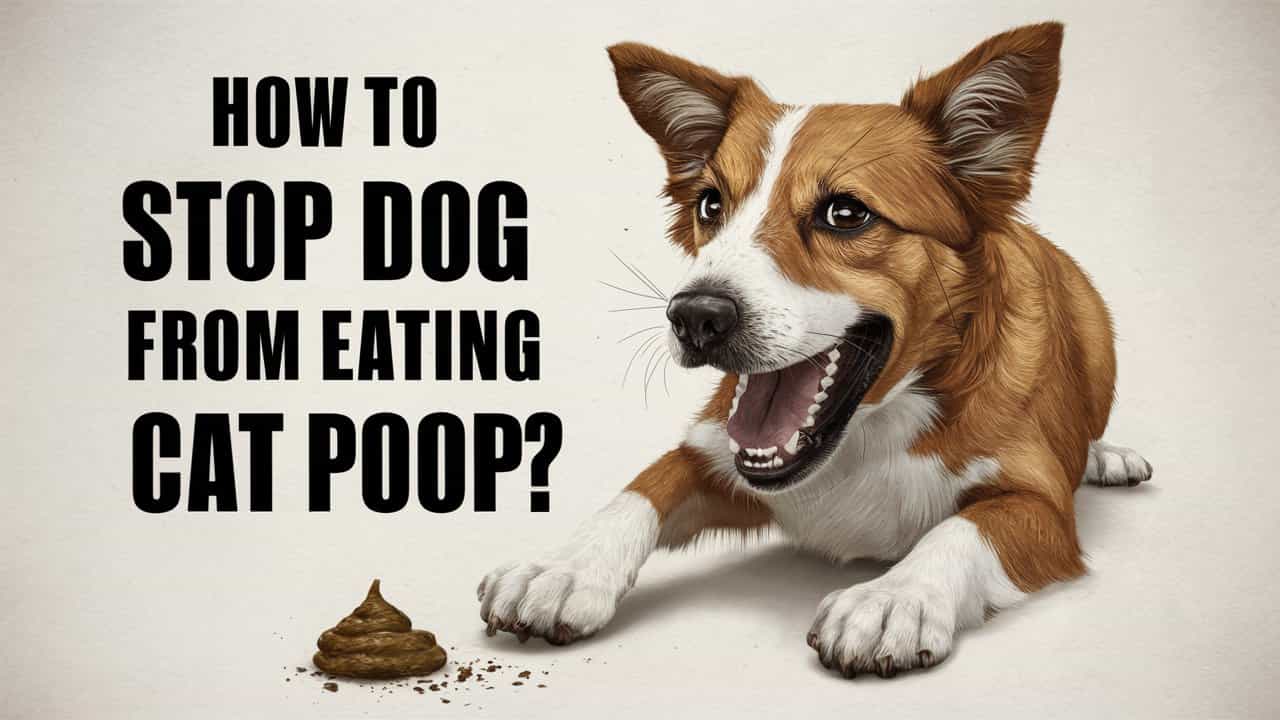Due to their natural curiosity, dogs frequently use taste to investigate their surroundings. Although this curiosity is charming, it can also result in some undesirable habits, like eating cat poop. Be at ease if you’re struggling with this disorganized and unsettling behavior. To stop your dog from eating cat poop and encourage better habits, there are several useful home remedies you can try. In this extensive guide, we’ll look at several all-natural ways to deal with this frequent problem.
Understanding the Behaviour: Why Do Dogs Eat Cat Poop?
It’s crucial to comprehend the underlying causes of dogs’ behavior before exploring potential solutions. This habit is known scientifically as “coprophagia,” and although it may seem repulsive to humans, it is comparatively common in dogs. Coprophagia in dogs can result from some factors, including:
- Nutritional Deficiencies: To make up for lost nutrients in their diet, such as protein or specific enzymes, dogs may consume cat poop.
- Behavioral Issues: Dogs may participate in coprophagia due to stress, anxiety, boredom, or attention-seeking behavior.
- Natural Instincts: To keep their den tidy or to deter predators, dogs in the wild may eat their excrement.
- Scent and Taste: Some dogs may find the strong scent and taste of cat poop to be simply irresistible.
Natural Home Remedies: Solutions at Your Fingertips
Now that we know some possible causes for this behavior, let’s look at some efficient at-home remedies to deal with it:
Modify the Diet
- Ensure that the food your dog is eating is balanced, healthful, and appropriate for their specific needs. To rule out any nutritional deficiencies, speak with your veterinarian.
- To lessen the chance that your dog will turn to cat poop for extra nutrients, think about switching to a high-quality dog food that includes all the necessary nutrients.
Boost Mental and Physical Stimulation
- To keep your dog mentally and physically active, give them lots of opportunities for mental and physical stimulation.
- Obedience training sessions, interactive toys, and regular walks can all help relieve boredom and lower the chance of participating in bad behaviors like coprophagia.
Monitor Outside Time
- When your dog is outdoors, keep a close eye on them, especially in places where they can access cat poop or litter boxes.
- To stop unauthorized access to places where cats might urinate, keep your yard fenced off or use a leash.
Disguise and Clean Cat Litter Boxes
- Reduce the allure of cat poop for your dog by keeping cat litter boxes clean and emptied regularly.
- Consider using covered litter boxes or putting them somewhere your dog can’t get to, like above ground level or behind closed doors.
Add Nutritional Supplements
- Some dietary supplements have the potential to discourage dogs from consuming cat poop by modifying the flavor or aroma of their poop.
- One option is to include ingredients like pineapple or pumpkin in your dog’s diet, as these foods are known to make poop less appetizing for dogs.
Instruction in Behavior
- Use training methods based on positive reinforcement to deter your dog from consuming or approaching cat waste.
- Reward good behavior with treats, cuddles, or praise; examples of such behaviors include ignoring cat poop and reacting to vocal cues.
Enhancement of Environment
- Offer your dog substitute toys and activities to divert his or her attention from the cat poop.
- Food-dispensing toys, chew toys, and interactive puzzles can provide mental stimulation and deter boredom-related behaviors.
Consult with Veterinarian
- Seek individualized advice from a veterinarian or certified animal behaviorist if your dog’s coprophagia does not improve with home remedies.
- Specific management techniques or treatments may be necessary for underlying medical disorders or behavioral problems.
Conclusion
In conclusion, dogs eating cat poop is a common occurrence, despite being unsettling. To address this problem, though, there are numerous efficient DIY solutions. Pet owners can promote healthier habits by learning the underlying causes and putting simple solutions into practice, such as changing the diet, increasing mental and physical stimulation, and keeping litter boxes clean. Together, you can enjoy a happier, more tidy environment as you assist your furry friend in overcoming this behavior with persistence and patience

